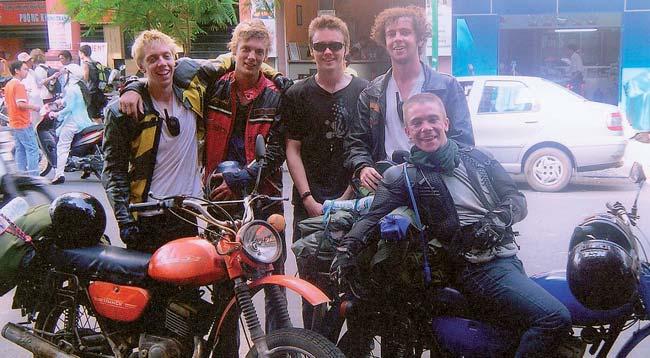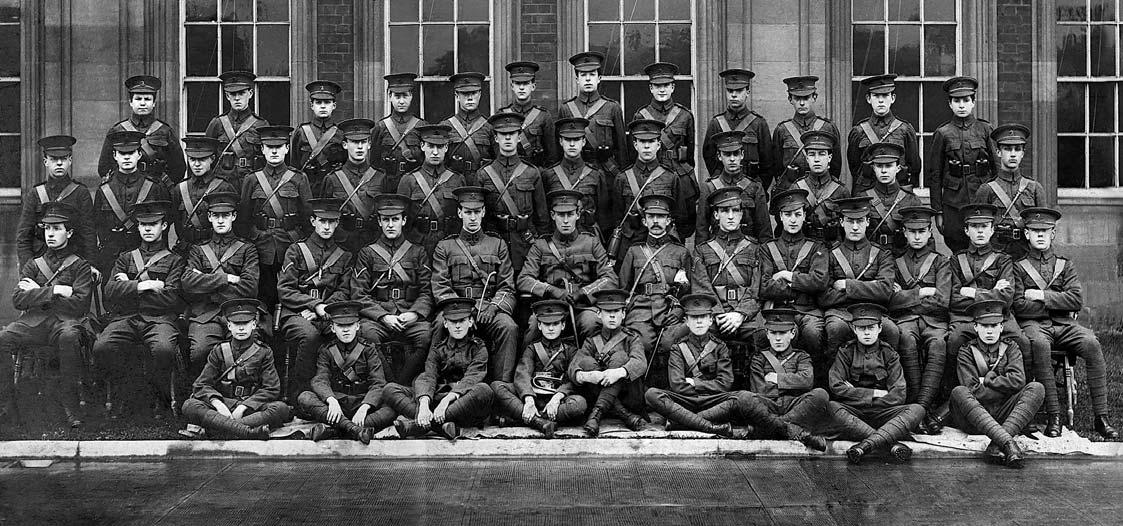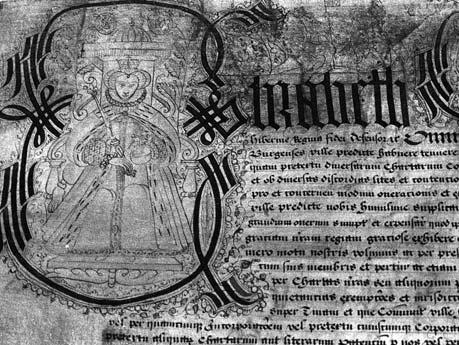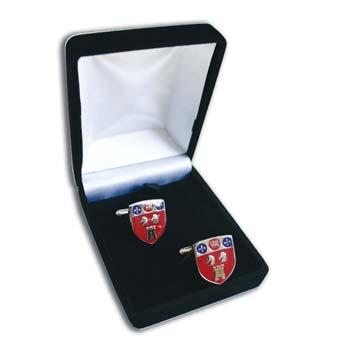
9 minute read
BursaryCampaign
from ONA 81
Committees! Many of you will shrink at the very word. After all, wasn’t the camel designed by a committee? Whatever does a committee ever really achieve? How can a disparate bunch of people sit down together and make things happen?
Advertisement
Well, there may be a fair number of such bodies who are largely driven by one or two forceful individuals who drive matters along their own agendas. Very often, however, perhaps through serendipity or maybe inspired selection (!), committees do exist whose members reflect a wide variety of interests and connections. Such is the case with the RGS Bursary Campaign Committee, meetings of which are full of enthusiasm, good humour and businesslike, hardly ever over-running the clock. The Committee’s members are listed at the end of this feature, which we hope will shed a little light on our work, and hopefully inspire some of the ONA membership to support the Campaign’s aims in the most tangible way.
As a member of the Bursary Campaign Committee, I offered to put some items together for the ONA Magazine, which is the main link between the school and its alumni, its former pupils. Who, I thought, is a person to whom countless Old Novos can relate and who holds many of the fondest feelings of ONs over very many years at the School? Who other than John Armstrong (member of staff 19722003)? So I contacted John, who is in the best of fettle and whilst showing his usual characteristics of shyness and modesty, expressed his thoughts on the Bursary Campaign.
At the time when he was working as Second Master, his position on the Committee was part of his job, but on John’s retirement, James Miller asked him to stay on the Committee. He made it clear that whilst now wishing to keep a discreet distance, he welcomes the chance to contribute to the Committee because of his belief in the objectives of the Campaign and in the opportunities bursaries provide.
After the demise of the Direct Grant system and later the Assisted Places Scheme, the Bursary Campaign is the only way the School can remain accessible to those whose families cannot afford the fees. John is glad to be associated with what has in a very few years become such a significant factor in this effort. The School hasn’t been static: it has changed, adapted, and developed, while at the same time there are so many important continuities too. Bursaries (themselves an adaptation) sustain an essential continuity. He believes that the RGS continues, as ever, to have a great role to play in the present and future life of the region.
John Armstrong
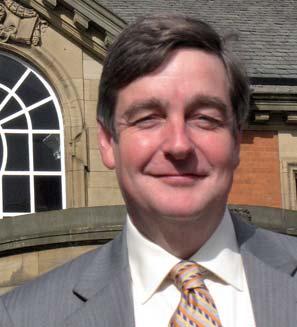
Bernard Trafford, Headmaster, is one of the most enthusiastic members of the Committee.
Here he offers some thoughts on an exemplary Old Novo, the foundations and progress of the Bursary Campaign and how he feels about the involvement of Old Novocastrians. Do take a few minutes to read his message:
2010 was an important landmark year – marking the bicentenary of the death of one of our most illustrious former students, Admiral Cuthbert Baron Collingwood of Caldburne and Hethpoole. There is a particular poignancy in Collingwood’s association – albeit a brief one –with the Royal Grammar School. Collingwood attended the RGS and joined the Royal Navy because his family were very short of money: there was no entry fee for the Royal Navy. The financial angle is attested to by Collingwood’s classmate, John Scott. The future Lord Chancellor of England commented that they met at school “because neither his father nor mine could afford to place us elsewhere”.
Is it mere coincidence that two of the most illustrious names of the early nineteenth century were at school together at the RGS? To be fair, it is pure coincidence. Yet it illustrates the historic tradition and purpose of education as provided by the RGS over nearly five centuries. The RGS was founded and functioned for its first few centuries (at least) as a school for relatively poor boys.
Yet the school has never forgotten why it was founded. After the 1944 Education Act children from less affluent homes were funded at the RGS through the Direct Grant scheme. When that ended, and the school rightly took the decision to become independent, it seized the opportunity of the Assisted Places Scheme which ran for two decades. And when the Blair government ended that scheme, abruptly, the first generous donations from concerned individuals paved the way for the present Bursary Campaign.
Thus the mission continued unchanged. To be sure, the education offered is rather broader than that offered under the great Hugh Moises, but we never forget that the purpose of the school is to offer that education to young people who will benefit from it and make the most of it. I am more proud than I can say that we have at any one time between 6.5% and 8% of the students in the school supported by bursaries, more than half of them on 90% to 100% assistance. Those are the sort of children for whom the school was founded: and still it reaches out to them, continuing unbroken that historic mission. 2010 is another landmark, also for the Bursary Campaign. Those who joined the school aged 11 in 2003 finished their time, completed A levels and moved on to university or gap year in the summer of 2010. They were joined along the way by other bursary holders, principally entering aged 16 to do two years in the Sixth Form. It was my privilege and pleasure to get to know the first 2003 cohort of bursary holders, a remarkably impressive bunch. Jenni McDermott (08-10) joined that group in the Sixth Form in 2008 (at the same time as I joined the school). In the true RGS tradition Jenni and the others were talented, hard-working, clever and multi-talented students, engaged in a host of activities outside the classroom as well as in it, and enormous fun to be with. They are now making the most of the opportunities university or gap year is affording them.
Collingwood believed passionately in helping his young officers to develop into outstanding leaders of men. It is well known, too, that he had a habit, when in the country, of taking from his pocket one of the many acorns he invariably carried and planting it when he saw a likely spot. He always looked ahead, whether he was bringing on midshipmen and creating the next officer cadre or planting acorns that (as far as he knew at that time) would provide oak trees to build ships for centuries to come. He saw each action as planting the seed that would become the future. A lasting testament to his vision lies in the famous plantation of Collingwood Oaks at Hethpool in the beautiful College Valley on the north edge of the Cheviots. In truth, Collingwood did not plant those. But in 1813 his widow planted one acorn for every ship that had taken part in the battle of Trafalgar in commemoration of her husband, and continuing his vision of planting and preparing for the next generation.
We too can play our part in continuing Collingwood’s vision of planting the seed that will become the future by donating to the Bursary Campaign. Until now the Campaign has been hugely successful, notwithstanding the economic downturn. But we will never have “enough” money to provide all the help that we want and need to. There are still more talented boys and girls out there, ready and willing to take the opportunities that the RGS offers, if only we can provide the necessary financial support from our bursary fund. So please think whether you as a former member of the school can contribute to the tradition that created such great men as Collingwood and Eldon and provide the best of futures for further generations of RGS students. I hope you will, and that you will give generously according to your means and ability.

After five years as Campaign Chairman, Crispian Strachan recently handed over the Chair to Old Novo Andrew Major (86-90). Andrew is hoping to bring a no less energetic, but different approach to the Committee’s work:
It is 20 years since I left the RGS. I was therefore delighted, this summer, to be asked to take the Chair of the Bursary Campaign’s Steering Committee, which I’ve served on for the past three years.
You may not be aware that the Bursary Campaign has had such a huge impact. In response to the phasing out of the Government’s Assisted Places scheme, the RGS pro-actively created a replacement vehicle to ensure that a limited family income does not prevent aspiring young people from benefiting from an RGS education and all it entails.
Between 6 and 8% of the school’s 1249 population are receiving some help with fees at any one time and thus far giving the ‘Gift of Education’ has been possible due to the generosity of (generally) local charitable trusts, some Old Novos and other individuals with a connection to or interest in the school. Our achievement is the envy of many other schools.
The Campaign has to date worked well. Last academic year £625,000 was raised in cash and pledges from donors. However, the year ahead is a challenge economically and we will do well to raise somewhere near our £645,000 commitments to fund current bursaries, without drawing on the small reserves the fund has built since inception. Annual fees at the school remain competitive at just under £10,000. Over a seven school year timescale, the school’s commitment to funding a bursary becomes clear.
If I have one objective for the Campaign over the next few years, it is to expand considerably the membership of this all too limited club of donors. Only 269 Old Novos financially support the Campaign, 6% of us. Can you help us support the next group of students achieve their aspirations by Giving the Gift of Education?

Bursary Campaign Chairman Andrew Major (86-90)

The Bursary Committee members are Andrew Major (Chairman) (86-90), Bernard Trafford, Richard Metcalfe, Catherine Wood , Catherine Young, Charles Penn (69-79), Claris D’Cruz, David Goldwater (51-62), Gillian Hall, Graeme Twaddle (66-76), Jean Ross, John Armstrong, Judith Wallace, Lucy Bird and Mike Barlow (53-64).
We all work together in the most supportive way. This is the friendliest and most positive committee I have ever served on. But the work we carry out is all the more satisfying when we receive substantive feedback – it’s what the Campaign exists for. In whatever way you are able, please support us in our goal.


